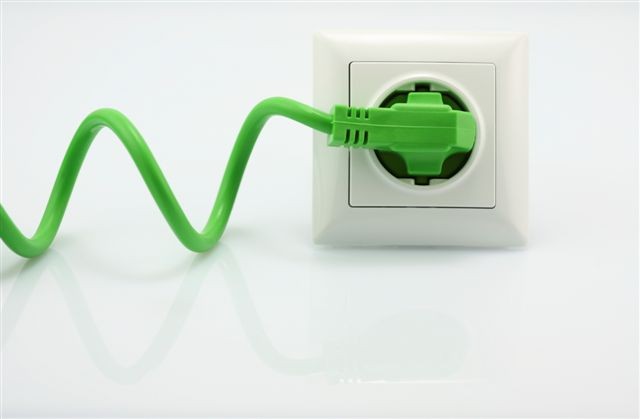

Strictly speaking, the electricity that comes out of your socket is never green. In fact it is impossible to ‘sort’ electricity.
However, you can be guaranteed that the money you pay for your electricity will be used to finance green electricity directly.
By definition, green electricity is produced exclusively from renewable energy sources (solar energy, wind power, hydraulic energy, biomass, geothermal energy, etc.). It may not be produced using fossil fuels or by nuclear power plants..
Oil, coal nor nuclear energy can therefore never fall into the previous category. They are referred to as grey energy.

No, in Belgium, the electricity that comes out of the socket is always a combination of green and grey electricity.
This electricity circulates on the same networks, regardless of its origin. But if you live in the immediate vicinity of a wind farm, the amount of green electricity will undoubtedly be greater.
|
18,6% green electricity In Belgium, 18.6% of the electricity produced is green (Eurostat 2019 report, based on 2017 figures). However, grey or green electricity of German or Dutch origin can also come out of Belgian sockets, as our transmission grid is connected to that of the neighbouring countries. |
If you opt for a green energy contract, you will ultimately have no access to other or better electricity than that of your neighbour. It is first and foremost a choice of consumption: you simply have the guarantee that your supplier produces or buys a quantity of energy that corresponds to your consumption. This is how you ultimately support the energy transition to more sustainable alternatives.
In Belgium, suppliers can offer green electricity to consumers in two different ways.
1. By producing green electricity themselves via their own production sites
2. By purchasing guarantee of origin certificates from other producers, in Belgium or Europe.
These certificates offer the guarantee that a quantity of electricity equivalent to the certificate (i.e.1 MWh) has been produced using a renewable source of energy. They offer you the advantage that the energy purchased by your supplier is traceable.
In Brussels, these certificates are issued by supervisory bodies approved by Brugel. They then allocate them to the producers, who in turn can resell them to suppliers.
The CREG (Committee for the Regulation of Electricity and Gas) checks annually that the sale and production of green electricity actually correspond.
NGOs such as Greenpeace point this out. Not all suppliers that offer green electricity are equally committed to the energy transition. For example, some have their own production sites, while others are content to buy certificates of origin and still operate fossil production plants.
However, producers who do not generate their own green electricity and thus buy certificates of origin are subject to a number of legal obligations. For example, they must always buy a percentage of these certificates that is proportional to their grey production. Failure to do so will result in fines in excess of the price of the certificates. In this way, they are forced to partially finance renewable energy.
For that matter, green energy can also have a ‘grey’ side. Immense renewable energy production facilities, such as huge hydraulic energy dams, can have a negative impact on the environment. Or: biomass power plants using wood pellets from the US or Canada instead of local wood. This ultimately leads to high fuel consumption for transport by ship.
To help consumers make their choice, Greenpeace has ranked the green suppliers and given them a score.
Subscribe to our newsletter and stay informed about energyfacts.